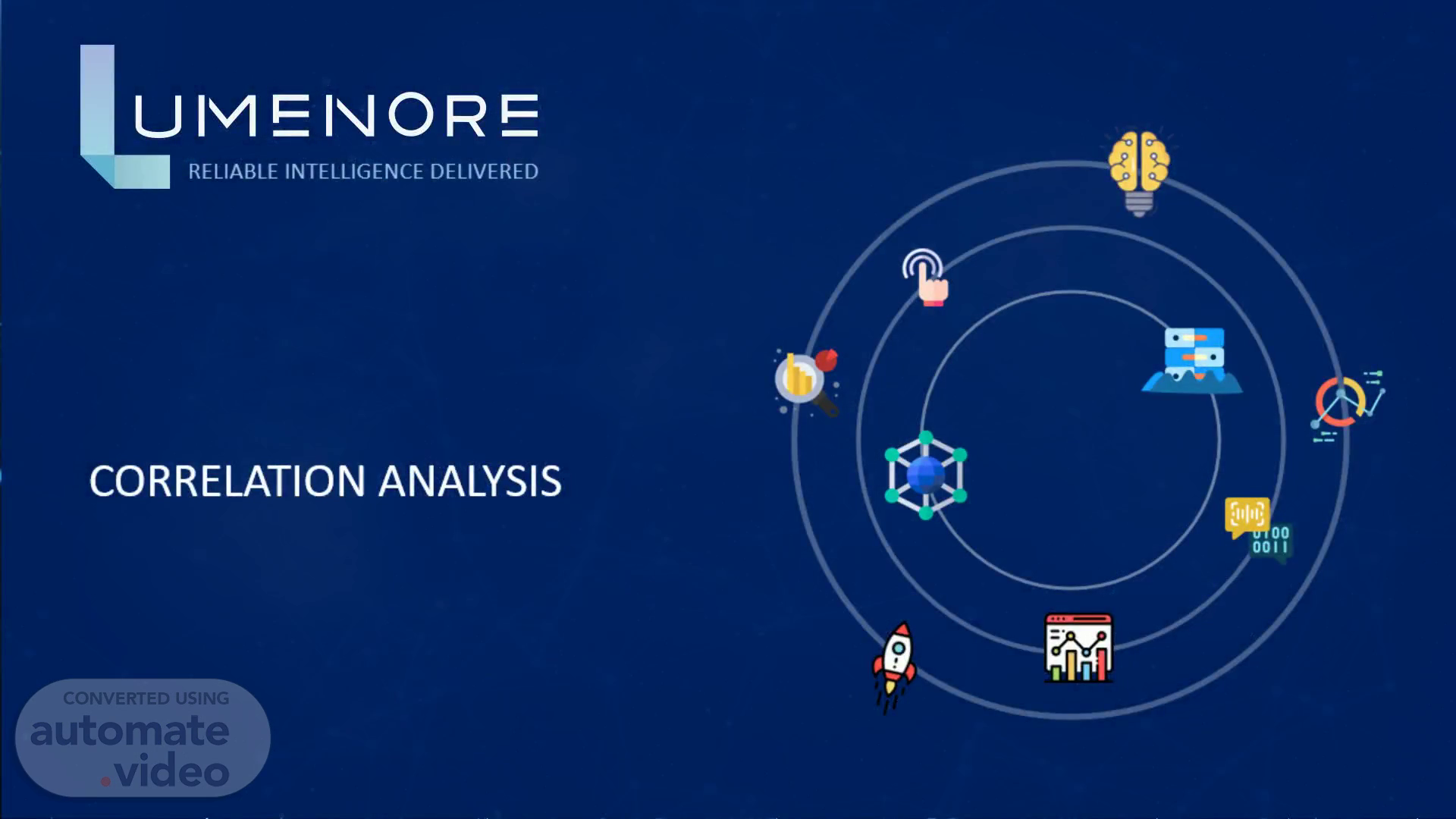
PowerPoint Presentation
Scene 1 (0s)
[Audio] Hi Folks!! I know we had a great session in the past week so we are back with our second-week topic Correlation Analysis. Stay tuned and watch and learn all the concepts of Correlation Analysis in our upcoming slides..
Scene 2 (17s)
[Audio] Correlation is a linear association between two random variables or we can also say that if two series vary in such a way that fluctuation in one variable is accompanied by the fluctuation in other variables then these variables are said to be correlated. For Example:- Spending more time on a treadmill burns more calories. So here we can see that calories are burnt due to spending more time on a treadmill, hence these two are correlated. Now if we see another example like the relationship between rainfall and production, here also we can see the production would increase or decrease depending upon the rainfall intensities hence we can say that these two are also correlated..
Scene 3 (1m 8s)
[Audio] Our First type of correlation is Positive and Negative Correlation. When two variables increase together and decrease together. They are positively correlated and hence we call them as Positive Correlation. ' 1' is a perfect positive correlation. For example – demand and profit are positively correlated like the more the demand for the product, the more profit hence the positive correlation. Now when one variable increases and the other variable decreases together and vice-versa. They are negatively correlated and hence we call them as Negative Correlation. For example, If the distance between magnet increases their attraction decreases, and vice-versa. Hence, a negative correlation..
Scene 4 (2m 1s)
[Audio] Now moving to the next type of Correlation that is Simple Correlation and Multiple Correlation When there is a study of the relationship between two variables we term them as Simple Correlation. If we take an example like Yield of paddy and the use of fertilizers is an example of simple correlation as the yield of paddy depends on the use of fertilizers that is the presence of one variable affects another variable. Now When there is a study of the relationship between three or more than three variables we term them as Multiple Correlation. For example, crimes in a city may be influenced by illiteracy, increased population and unemployment in the city, so here we can see there are multiple factors related..
Scene 5 (2m 52s)
[Audio] Lastly in the series of types of correlation, we have Linear and Non-linear correlation. Now when the two variables change in constant proportion we call them Linear Correlation. For example when the amount of output in a factory is doubled by doubling the number of workers. And when the two variables do not change in any constant proportion those are termed as Non-linear Correlation. For example, with the 20% increase in the income, the expenditure sometimes increases by 5% sometimes by 10%, or by 15%..
Scene 6 (3m 31s)
[Audio] In this Video, we will talk about the way we generally measure correlation we quantify by using Correlation Coefficient that measures the strength of the relationship between variables. Here we can see that -1 represents a Strong Negative that is when one goes up other goes down, 0 represents as No Correlation between these variables, and +1 represents as a Strong positive as one goes up other also goes up as well. In our next slide, we will see different values of r with subsequent graphs..
Scene 7 (4m 10s)
[Audio] So here are the examples of some positive and negative correlations by their correlation coefficients. As you can see in the case of stronger correlations either closer to positive 1 or negative 1, the points are closer together. They look more linear, as those numbers get weaker the data points start to spread out and relationships are not as clear.
Scene 8 (4m 37s)
[Audio] Coefficient of determination The coefficient of determination is a measure, that assesses how well the model explains and predicts future outcomes The coefficient of determination is found by squaring the correlation coefficient r. The most common interpretation of the coefficient of determination is how well the regression model fits the observed data. For example, a coefficient of determination of 60% shows that 60% of the data fit the regression model. Generally, a higher coefficient indicates a better fit for the model..
Scene 9 (5m 17s)
[Audio] In this slide we will talk about different types of correlation First, Positive and Negative Correlation Second, Simple and Multiple Correlation Third, Linear and Non-Linear Correlation In the upcoming slides, we will talk briefly about each type..
Scene 10 (5m 39s)
[Audio] The coefficient of determination is found by squaring the correlation coefficient r. The most common interpretation of the coefficient of determination is how well the regression model fits the observed data. For example, a coefficient of determination of 60% shows that 60% of the data fit the regression model. Generally, a higher coefficient indicates a better fit for the model..